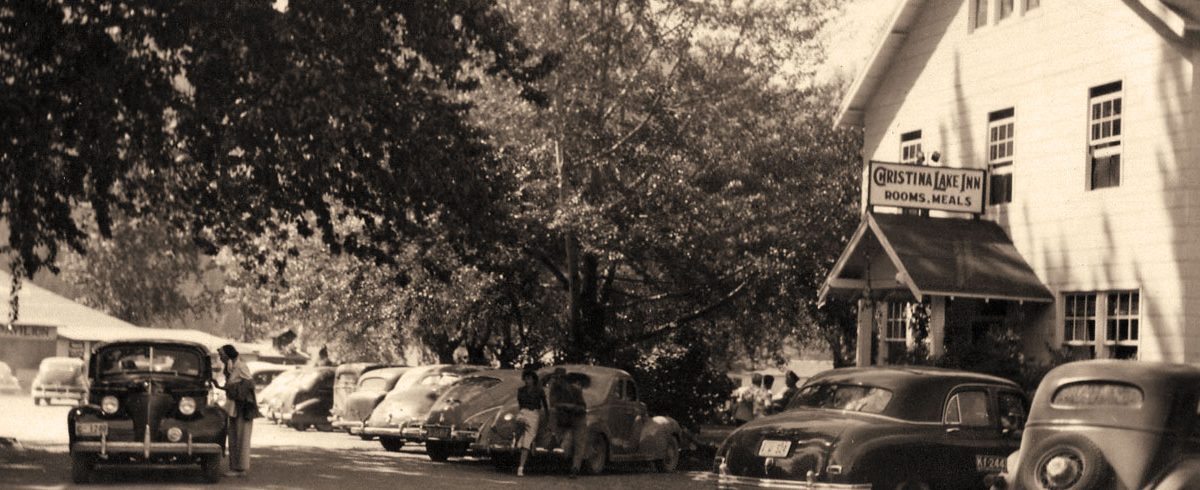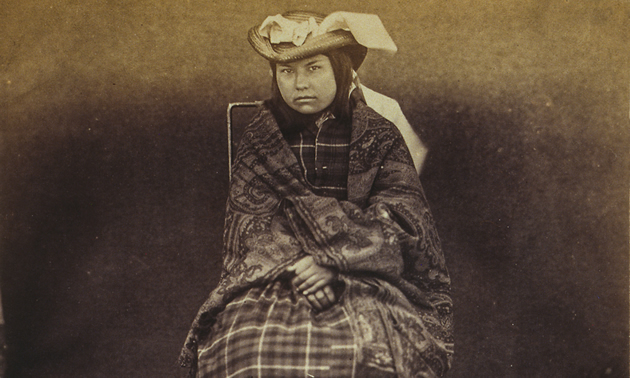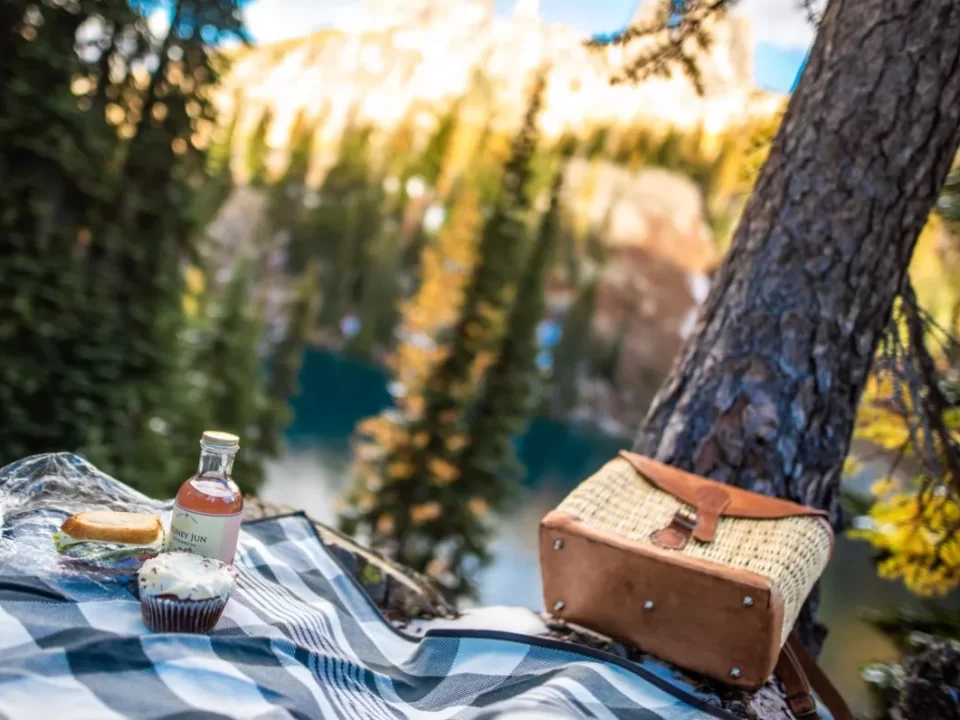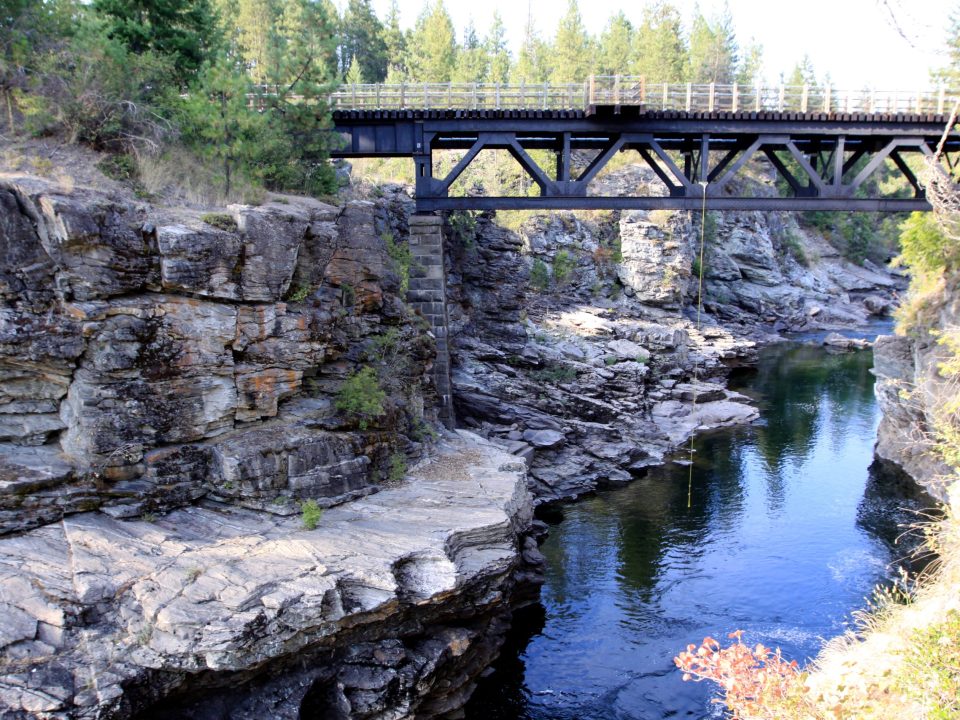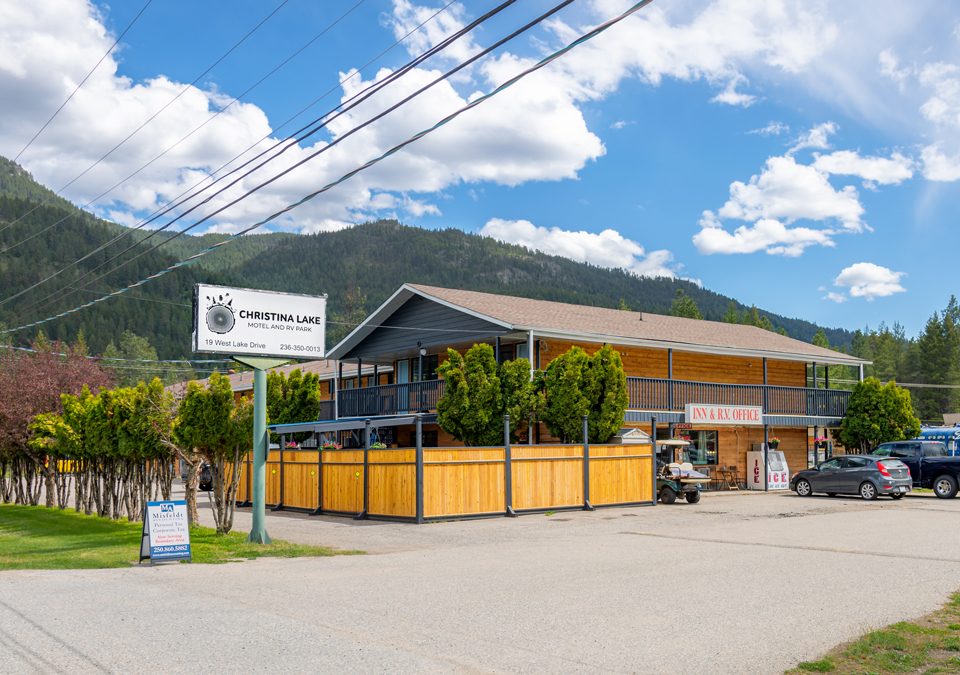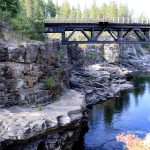
Discover the Top 10 Things to Do in Christina Lake, BC
July 1, 2024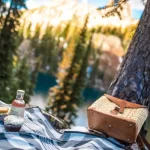
Date Ideas in and around Christina Lake, BC
September 27, 2024Christina McDonald
Nestled in the picturesque landscapes of British Columbia's Boundary Country, Christina Lake holds a rich and diverse history that spans centuries, blending indigenous heritage with tales of pioneering settlers and technological advancements.
"Christina Lake'' is named after Christina McDonald who is the daughter of Angus McDonald, the Chief Factor of Hudson’s Bay Company headquarters at Colville, and Catherine McDonald, whose father was French Canadian, and whose mother was from the Perce Nez band. Christina worked as the bookkeeper for her father at the Hudson's Bay Headquarters. Christina's early life was marked by adventurous travels alongside her father, Angus, as they journeyed from the Hudson’s Bay Company headquarters at Colville to Kamloops. During one fateful trip in June 1870, her bravery shone through when her raft broke while going over the creek leaving her to be swept down by the water, despite this Christina still managed to rescue her father's important HBC records from sinking. For this heroic act, Christina and her lineage were granted exclusive fishing and trapping rights by the Colville Indians, a gesture that immortalized her name in the region's geography (Haggen, 1945).
Christina McDonald's story continued beyond her youthful exploits. She married James McKenzie, an HBC clerk at Fort Colville, and together they operated a successful trading post near Kamloops, which rivaled the Hudson’s Bay Company's operations. After James' untimely death in 1873, Christina took over the business operations herself, demonstrating remarkable acumen and business savvy. She was the first female shop owner in Canada and her trading post flourished, posing significant competition to the established HBC stores in the area.
In 1875, Christina married Charles Williams, and together they ventured southward, first to Montana, then to Idaho, and eventually settling in Spokane, Washington. Throughout her life, Christina continued to embody the pioneering spirit and resilience that characterized her early years in British Columbia. She passed away in the winter of 1925-26 in Spokane, leaving behind a legacy of entrepreneurship and courage that resonates to this day (Provincial Archives of BC, 1945-1950).
The Railroad, Cascade City, and the Highway
The arrival of the railroad in the late 19th century brought significant changes to Christina Lake, marking the beginning of more permanent settlement and economic growth. This transportation lifeline connected Christina Lake to the wider region, spurring the development of multiple town sites and attracting visitors eager to explore its natural beauty. By the turn of the century, Christina Lake had become a popular destination for day-trippers from Grand Forks and Phoenix, drawn by the serene waters and the burgeoning hospitality industry, which boasted at least five hotels catering to tourists (Provincial Archives of BC, 1945-1950).

One of the prominent settlements during this period was Cascade City, a bustling community that thrived with a population of approximately 1000 residents. Cascade city was located in the same area where Christina lake Golf Course is currently located. Cascade City was not only a hub for commerce and hospitality but also a center for technological innovation. The Cascade Water Power & Light Co. Ltd., established in 1898, played a crucial role in local development by constructing a dam across the Kettle River and harnessing its hydroelectric potential. This endeavor provided electricity to nearby towns like Grand Forks, Phoenix, and Greenwood, as well as supporting local mining and smelting operations (Boundary BC).
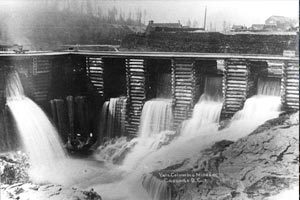
In the aftermath of World War II, Christina Lake began to evolve into a recreational haven, attracting vacationers seeking solace in its natural beauty. Improved infrastructure, including the completion of a highway linking Castlegar directly to Christina Lake in the early 1960s, further enhanced accessibility and boosted tourism. The Christina Lake Golf Club, which opened in the 1960s and expanded to a full 18-hole course by 1986, became a cornerstone attraction, drawing golf enthusiasts from far and wide (Christina Lake Community Association).
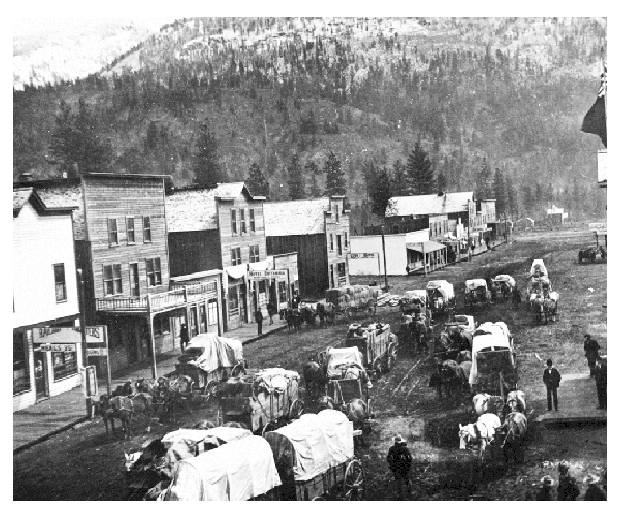
The Sinixt First Nation’s Pictographs
The cultural and historical richness of Christina Lake extends beyond its settler history to encompass its indigenous heritage. The Sinixt First Nation, whose ancestral lands encompass Christina Lake and the Kettle River, have inhabited the region for centuries. Evidence of their presence can be found in ancient pictographs along the lake’s eastern shore and within Gladstone (Texas Creek) Provincial Park, offering poignant insights into their traditional lifestyles and connection to the land (Boundary BC).
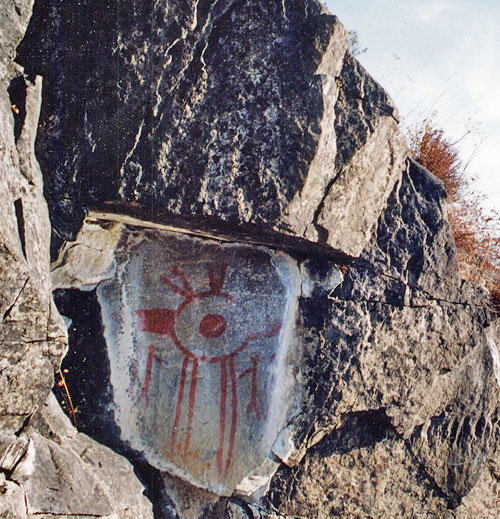
Advancements in Electrical Power
Technological advancements also played an important role in Christina Lake's history. The Cascade site is one project that shows the innovation and breakthroughs in electrical power generation at this time “renowned for its early experiments with 3-phase 60-cycle alternating current generators”(Renewable Power Corp). This technological advancement not only powered local industries in the Kootenay area but also settled the debate between direct current led by Thomas Edison and alternating current headed by Nikola Tesla (Renewable Power Corp).
Famous People who Visited the Area
Thomas Edison was not the only famous person who visited the Kootenay and Boundary area throughout history. American president Theodore Roosevelt came to visit Kootenay Lake in 1888 for a hunting trip. He even dedicated a chapter of his book “The Wilderness Hunter” to the area (Matthews, K. 2024).
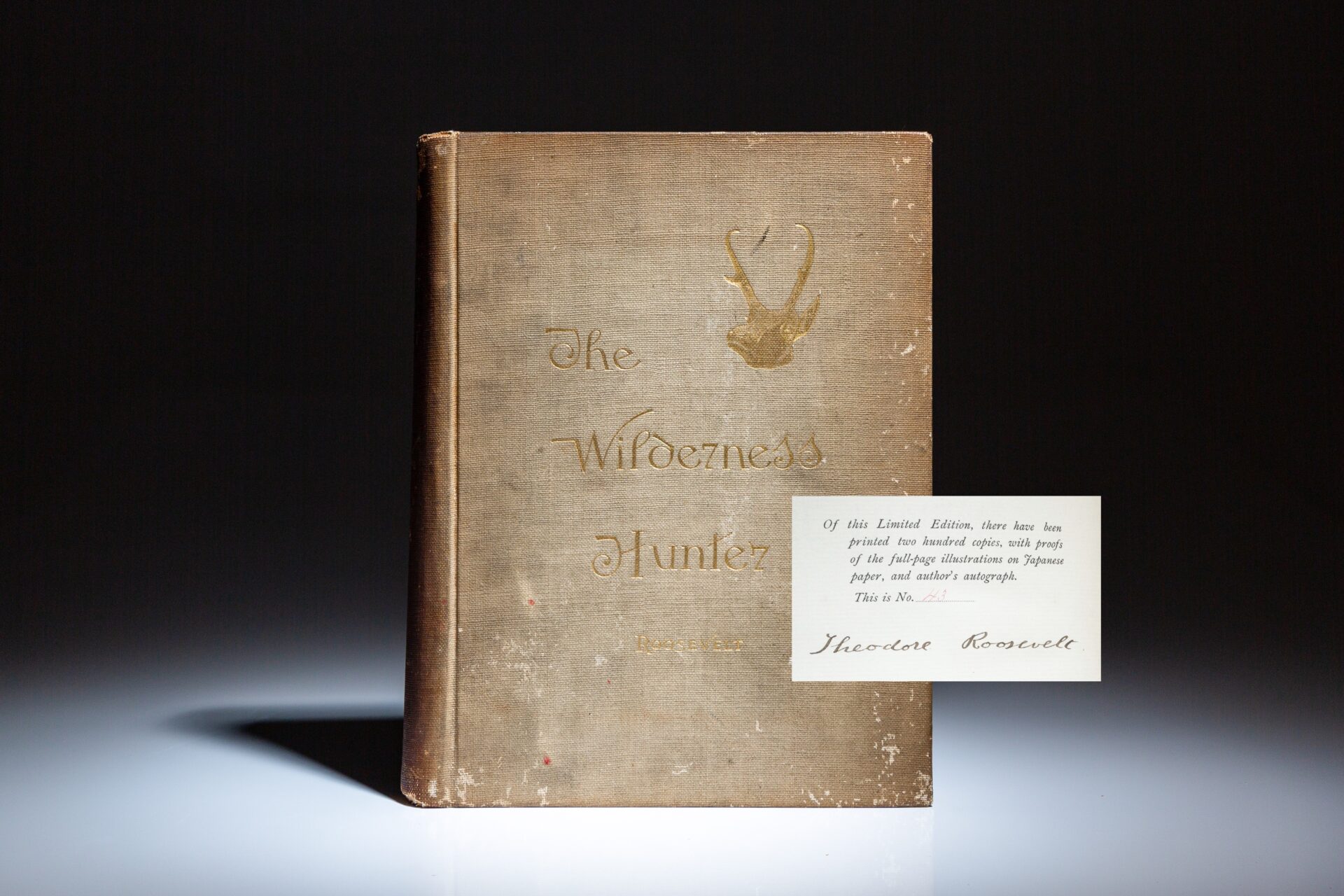
Another famous person who visited the area was Willie Nelson who ironically came to Nelson in 1993 to appear in Starlight, a science fiction movie being filmed there. Something that not everyone knows, including residences in the area, is that Current prime minister Justin Trudeau’s youngest brother Micheal Trudeau also used to live in Rossland. He used to work at Red Mountain Resort in the winters but unfortunately in 1998 Micheal was swept up by an avalanche, his body being lost to the Kokanee Lake (Matthews, K. 2024).
The West Kootenay has also hosted royalty on more than one occasion. King Edward VIII came through the Kootenays twice while he was still the Prince of Wales. 1919 being the first of those visits. You can see the visit on a newsreel that shows the prince “arriving at the Nelson train station, boarding the SS Nasookin, and meeting with convalescing soldiers at the CPR hotel in Balfour” (Matthews, K. 2024). Queen Elizabeth II came to Castlegar in 1971 during BC’s centennial celebrations, she brought with her Prince Phillip and Princess Anne. Although their stopover at Selkirk College lasted less than an hour it drew thousands of people (Matthews, K. 2024).
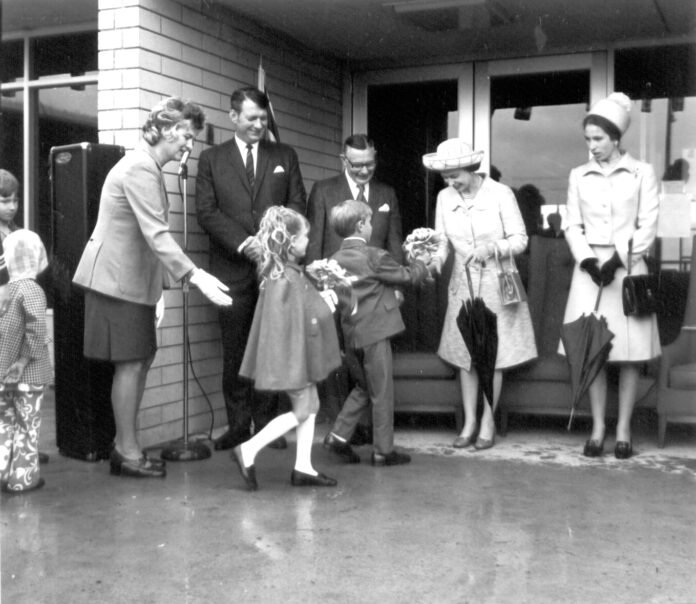
Conclusion
Today, Christina Lake thrives as a vibrant community and is a cherished destination for outdoor enthusiasts, history buffs, and those seeking a retreat into nature. Its scenic beauty, coupled with a rich tapestry of cultural and technological heritage, ensures that Christina Lake remains an enduring symbol of British Columbia's past and present.
References
Boundary BC. (n.d.). Arts, Heritage & Culture. Retrieved from https://boundarybc.com/things-to-do/arts-heritage-culture/heritage-culture/
Christina Lake Community Association. (n.d.). History of Christina Lake. Retrieved from https://christinalake.ca/welcome/history/
Haggen, R. W. (1945). Origin of Place Names in Boundary District. Provincial Archives of BC.
Matthews, K. (2024). Famous faces in West Kootenay-Boundary. Nelson Star. https://www.nelsonstar.com/news/famous-faces-in-west-kootenayboundary-4847667
Provincial Archives of BC. (1945-1950). Place Names File, compiled by A. G. Harvey.
Renewable Power Corp. (n.d.). Cascade Heritage Power Project. Retrieved from https://renewablepowercorp.com/cascade
Figures
Cover photo - History – Christina Lake
Fig 1. Christina McDonald - Who was Christina Lake’s Christina? | RVwest
Fig 2. The Railroad - History – Christina Lake
Fig 3. The Power Damn - History – Christina Lake
Fig 4 Cascade City - .Cascade City - Wikipedia
Fig 5. The Sinixt First Nation’s Pictographs - History - Christina Lake Sunflower Inn (sunflowerinnbb.com)
Fig 6. Theodore Roosevelt’s book - The Wilderness Hunter - The First Edition Rare Books
Fig 7. Queen Elizabeth's visit - The day the Queen came to Castlegar - My Kootenay Now

